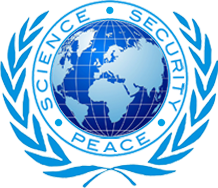ملاحظة: ركزت الأقسام السابقة من هذا الموقع على الانخفاض في حدة الإجهاد الاجتماعية الحادة التي تؤدي إلى ازدياد الجريمة والنزاعات الاجتماعية. وبالإضافة إلى هذه المقاربة، يتعين علينا، حيثما أمكن، أن نسعى جاهدين للتخفيف من حدة مسببات الإجهاد نفسها – أي معالجة وتخفيف مصادر الإجهاد الاجتماعية الحادة، مثل الفقر، وعدم المساواة الاجتماعية والاقتصادية، والتهجير، وغيرها من المسببات المعروفة. ومن المعروف على نطاق واسع أن احتمال تغير المناخ يؤدي إلى تفاقم ومضاعفة هذه الإجهاد المجتمعية، مما يزيد من خطر النزاع. كما يقول الدكتور باشوري، المعروف عالمياً في نشاطه في مسألة تغير المناخ، تحت قيادة الفريق الحكومي الدولي المعني بتغير المناخ والذي نال جائزة نوبل للسلام في عام 2007، يقدم هذا الموجز عن الآثار المحتملة لتغير المناخ على النزاع العالمي. تشكل هذه الآثار حافزا قويا لاتخاذ إجراءات وقائية حاسمة. – جون هاجلين، الرئيس
Climate Change and Global Conflict
R.K. Pachauri, Ph.D.
Chair, Intergovernmental Panel
on Climate Change, 2002-2015
Executive Vice Chairman,
The Energy and Resources Institute (TERI)

R.K. Pachauri, Ph.D.
Numerous statistical studies have demonstrated the potentially large impact of climate variability on human conflict [1]. Climate change has the potential to significantly increase the risk of violent conflict by amplifying well-documented drivers of these conflicts, such as competition for resources and the hunger and economic shocks resulting from greater poverty.
Analysis of the actions of states and security institutions confirms that many states view current and anticipated climate changes as contributing to geopolitical concerns (Dabelko, 2009; Smith, 2011). The willingness of states to share resources and their ability to provide human security are challenged by climate change impacts. These impacts can create contested claims to territory on land and at sea and, in extreme cases, can threaten the territorial integrity or viability of states (Barnett and Campbell, 2010; Houghton et al., 2010; Yamamoto and Esteban, 2010) [2].
It is worth noting that extreme events are frequently accompanied by conflict. When Hurricane Katrina devastated the city of New Orleans, conflict broke out spontaneously. Although a scientific assessment on a definitive basis is yet to be made, several commentators have linked the conflicts in Sudan and in Syria to prolonged drought, erratic weather patterns and other manifestations of climate change. Climate variability or climate change is also reported to be a significant cause of the mass killing in the Darfur region that began in 2003 [3].
The Fifth Assessment Report (AR5) of the Intergovernmental Panel on Climate Change (IPCC) has assessed projected impacts of climate change, and has highlighted the potential drivers of conflict resulting from human induced climate change. There are five “Reasons For Concern” that have been identified in the AR5, and each one of these could have direct impacts on human society, possibly leading to conflict. These include: (1) Unique and threatened systems; (2) Extreme weather events; (3) Distribution of impacts, which vary across the globe; (4) Global aggregate impacts, such as sea level rise; and (5) Large-scale singular events.
Climate change will exacerbate risks and in turn further entrench poverty (very high confidence). The well-known and highly referenced Wheeler data set (2011) analyzes climate risk and coping ability by country. Future increases in the frequency of extreme events are overlaid with considerable poverty. Of the 20 countries and regions most at risk, seven are low-income countries (LICs), eight are low-middle-income countries (LMICs), four are upper-middle-income countries (UMICs), and one is a high-income country (HIC) [4].
For example, the Synthesis Report (SYR) of the AR5 states that climate change is projected to increase displacement of people. Populations that lack the resources for planned migration (e.g., in developing countries with low income) experience higher exposure to extreme weather events, such as flood and droughts. Changes in migration patterns can be responses to both extreme weather events and longer-term climate variability and change.
The segments of the global population that have experienced water scarcity or been subject to major river floods are projected to increase with the level of warming in the 21st century. Climate change over the 21st century is projected to reduce renewable surface water and groundwater resources in most dry subtropical regions, intensifying competition for water among sectors. In presently dry regions, the frequency of droughts will likely increase by the end of the 21st century.
Moreover, all aspects of food security are potentially affected by climate change, including food production, access, use, and price stability. For wheat, rice, and maize in tropical and temperate regions, climate change without adaptation is projected to negatively impact production at local temperature increases of 2°C or more above late 20th century levels.
Until mid-century, projected climate change will impact human health mainly by exacerbating health problems that already exist. The advance and increase of mosquito-borne diseases in several parts of the world is clearly the result of climate change, among other factors. Other health impacts include greater likelihood of injury and death due to more intense heat waves and fires, increased risks from foodborne and waterborne diseases and loss of work capacity and reduced labor productivity in vulnerable populations. Risks of undernutrition in poor regions will increase. Risks from vector-borne diseases are projected to generally increase with warming, due to the extension of the infection area and season, despite reductions in some areas that become too hot for disease vectors.
All of these changes and their impacts raise the potential for conflict at the subnational as well as the international levels. Unless climate change is adequately addressed and substantially mitigated, the magnitude and severity of these negative impacts are expected to increase significantly in the coming decades.
References
- Intergovernmental Panel on Climate Change (IPCC), Fifth Assessment Report (AR5), Working Group II (WGII), Climate Change 2014–Impacts, Adaptation, and Vulnerability, Part A: Global and Sectoral Aspects, 19.4.2.2–Risk of Conflict and Insecurity, 1061.
- IPCC AR5 WG II, Climate Change 2014–Impacts, Adaptation, and Vulnerability, Part A: Global and Sectoral Aspects, 12.6.2–Geopolitical Issues, 775.
- IPCC AR5 WG II, Climate Change 2014–Impacts, Adaptation, and Vulnerability, Part A: Global and Sectoral Aspects, Box 12-5–Climate and the Multiple Causes of Conflict in Darfur, 773.
- IPCC AR5 WG II, Climate Change 2014–Impacts, Adaptation, and Vulnerability, Part A: Global and Sectoral Aspects, 13.2.2.1–Projected Risks and Impacts by Geographic Region, 810.

